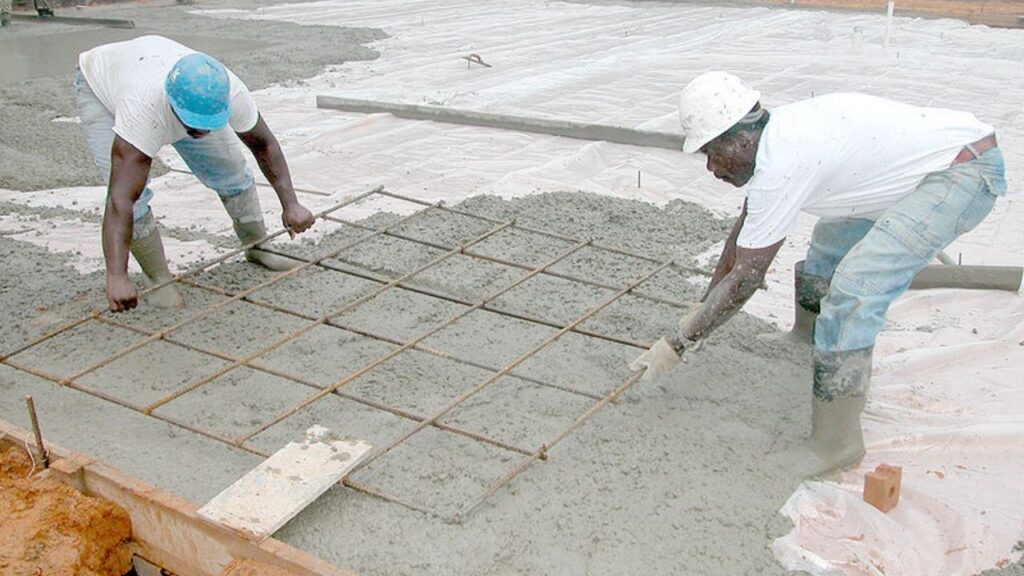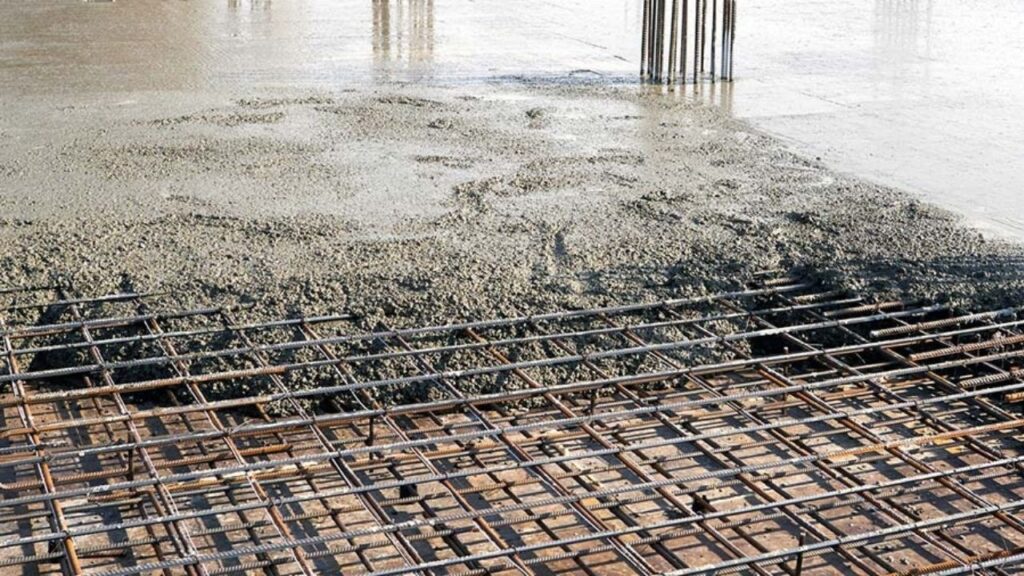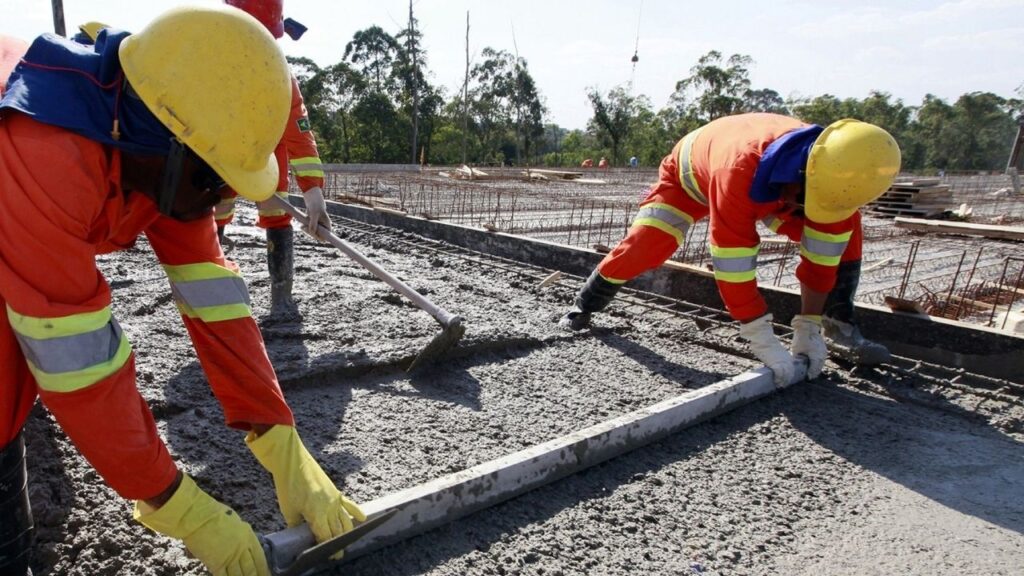Top 8 Types of Concrete Used in Construction
Concrete is the most popular residential and commercial building material around the world, equalling the next two products combined (when considering tonnage). And while you might think working with concrete is as simple as backing up one of those familiar trucks and dumping the cement, there is a lot of engineering, planning, and testing that takes place before the concrete is evenly mixed.
For example, do you know how much steel-reinforced bars go into pouring a driveway, patio, or skyrise apartment building? That the number of coarse aggregates used in a mixture can change the complexity of a pour? That the very air we breathe can be more destructive to concrete than several tons of pressure from above?

We are actually living in a concrete era. It has become so important because it is used in almost every type of construction: (buildings, roads and highways, tunnels, storage dams and power generating plants, airports, and atomic power reactors).
Concrete is much more than a material you write your name or company name in before it hardens. There several types of concrete, even if the finished product looks very similar. Let’s take a quick look at the most commons types of concrete and what they are used for:
Types of Concrete Used in Construction
1. Plain Concrete
The plain concrete will have no reinforcement in it. The main constituents are the cement, aggregates, and water. Most commonly used mix design is 1:2:4 which is the normal mix design. The density of the plain concrete will vary between 2200 and 2500 Kg/meter cube. The compressive strength is 200 to 500 kg/cm2. These types of concrete are mainly used in the construction of the pavements and the buildings, especially in areas where there is less demand of high tensile strength. The durability given by these type of concrete is satisfactory to high extent.
2. Reinforced Concrete
The reinforced cement concrete is defined as the concrete to which reinforcement is introduced to bear the tensile strength. Plain concrete is weak in tension and good in compression. Hence the placement of reinforcement will take up the responsibility of bearing the tensile stresses. R.C.C works with the combined action of the plain concrete and the reinforcement. The steel reinforcement used in the concrete can be in the form of rods, bars, or in the form of meshes. Now fibers are also developed as reinforcement.

3. Precast Concrete
Various structural elements can be made and cast in the factory as per the specifications and bought to the site at the time of assembly. Such concrete units are called as the precast concrete. The examples of precast concrete units are concrete blocks, the staircase units, precast walls and poles, concrete lintels and many other elements. These units have the advantage of acquiring speedy construction as only assemblage is necessary. As the manufacturing is done at site, quality is assured. The only precaution taken is for their transportation.
4. Air Entrained Concrete
These are concrete types into which air is intentionally entrained for an amount of 3 to 6% of the concrete. The air entrainment in the concrete is achieved by the addition of foams or gas-foaming agents. Some examples of air-entraining agents are resins, alcohols, and fatty acids.
5. Polymer Concrete
When compared with the conventional concrete, in polymer concrete the aggregates will be bound with the polymer instead of cement. The production of polymer concrete will help in the reduction of volume of voids in the aggregate. This will hence reduce the amount of polymer that is necessary to bind the aggregates used. Hence the aggregates are graded and mixed accordingly to achieve minimum voids hence maximum density. This type of concrete has different categories:
- Polymer Impregnated Concrete
- Polymer cement concrete
- Partially Impregnated
6. Rapid Strength Concrete
Rapid strength concrete (RSC) is concrete that is rapidly gaining strength. Concrete resistance over 3000 psi can be reached in under two hours. The standard specification provides two options for the rapid processing of RSC hydraulic concreting. The first is the use of Portland cement of the third type, and the strength can be improved by using chemical additives.
The second option is to use other hydraulic cement with chemical properties to rapidly increase resistance, such as modified high alumina cement (MHAC) or calcium cleaved cement (CSA).

7. Air Entrained Concrete
It is a specially prepared plain concrete in which air is entrained in the form of thousands of uniformly distributed particles. The Volume of air thus, entrained may range between 3-6 percent of the concrete. The air entrainment is achieved by adding a small quantity of foaming or gas-forming agents at the mixing stage. Fatty acids, fatty alcohols, and resins are some common air-entraining agents. Air entrained concrete is more resistant to;
- Scaling.
- Deterioration due to freezing and thawing.
- Abrasion.
8. Vacuum Concrete
Concrete with water content more than required quantity is poured into the formwork. The excess water is then removed out with the help of a vacuum pump without waiting for the concrete to undergo setting. Hence the concrete structure or the platform will be ready to use earlier when compared with normal construction technique. These concretes will attain their 28 days compressive strength within a period of 10 days and the crushing strength of these structure is 25 % greater compared with the conventional concrete types.
Process To Get Concrete Cost Estimate Report
Here I am going to share some steps to get your Concrete cost estimate report.
-
You need to send your plan to us.
You can send us your plan on info@estimatorflorida.com
-
You receive a quote for your project.
Before starting your project, we send you a quote for your service. That quote will have detailed information about your project. Here you will get information about the size, difficulty, complexity and bid date when determining pricing.
-
Get Estimate Report
We do concrete cost estimating and prepare a detailed report for your project. At last you finalize the report and finish the project.


